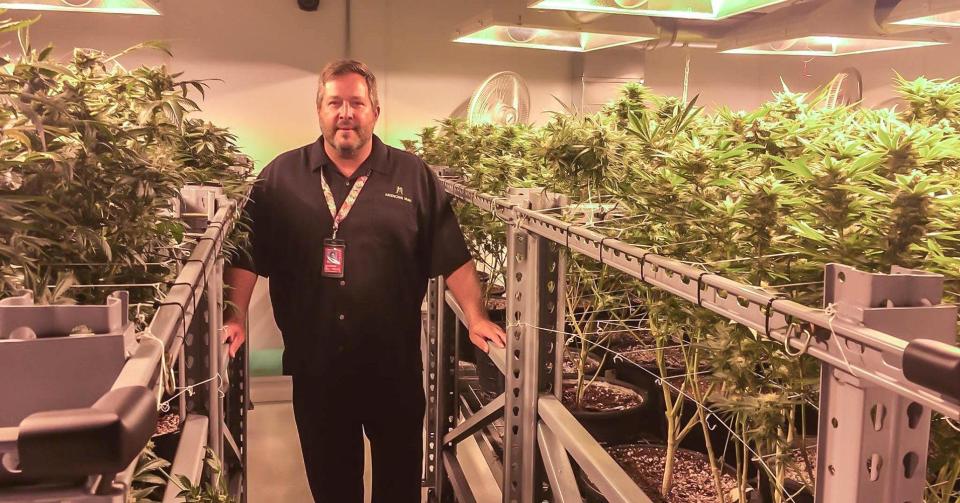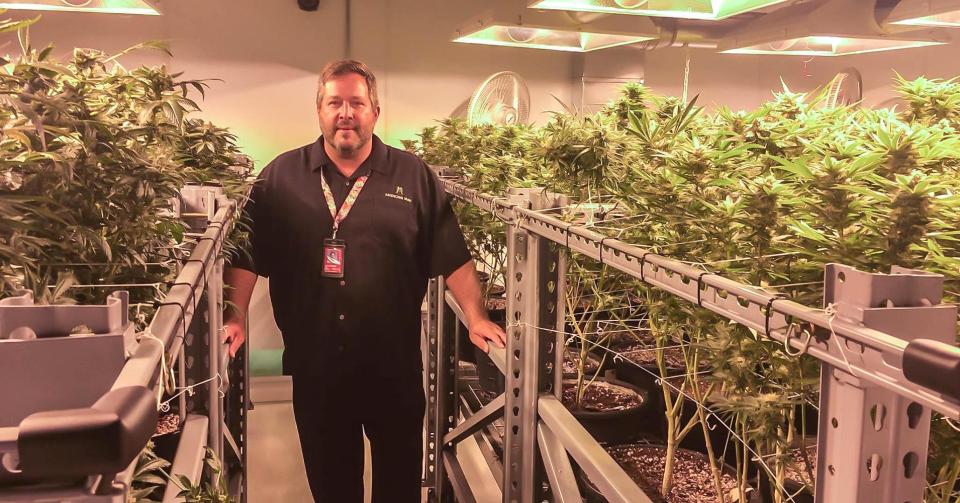Weed business set to be one of fastest growing job generators in US
Natalia Karoway is a trained herbalist, but the entrepreneur wants to expand her client offerings to include traditional cannabis treatments. So, she's hitting the books to beef up her resume at the Northeastern Institute of Cannabis in Natick, Massachusetts.
"I really wanted to have some experience with the plant, and learn how I could use it in products and topicals," the 35-year-old Karoway said. "I wanted to have the best medicine to offer to clients, and the best education I could."
The 12-course program covers everything from law to patient service and marketing. Some 400 students from across the country have shelled out $2,000 for a certificate from the school since it opened in 2014. NIC is not alone in educating students on the plant and the multibillion dollar industry that has blossomed around it. Traditional colleges and universities including the University of Denver and Vanderbilt University have also offered courses tied to the cannabis space in recent years.
"When you walk into a job interview, being able to say, 'I have trained myself on this, I have gone through a school and have a certificate that says I am competent in the cannabis industry' is definitely a leg up from somebody who doesn't have any background or formal experience in cannabis," said Cara Crabb-Burnham, dean of faculty at NIC, which is awaiting certification from the state.
Bud's booming industry
Students like Karoway are getting formally educated in cannabis to help set them in apart in an industry that currently employs some 150,000 people. Analysts project that number could double or even triple in the years to come, making marijuana one of the fastest-growing industries in the nation, with cannabis legal for medicinal use in 25 states and recreational use in four states and the District of Columbia.
Industry analysts GreenWave Advisors and the ArcView group estimated the industry was worth $4.8 billion and $5.4 billion, respectively in 2015. GreenWave estimates the cannabis industry will hit $6.5 billion in 2016, while ArcView's report projects $6.7 billion. Both research groups estimate the industry will surpass $20 billion by the year 2020. Separate data from industry watcher Marijuana Business Daily projects the industry's economic impact could surpass $40 billion in the next five years, up from some $17 billion in 2016.
These projections will only grow even more in the wake of the November election, with eight states voting to legalize the drug. California, Nevada, Massachusetts and Maine approved recreational usage, and medicinal usage passed in Florida, Arkansas, North Dakota and Montana. A recreational vote in Arizona did not pass.
The cannabis boom has been a gold mine for entrepreneurs like Andy Williams, CEO of Medicine Man, a Denver-based dispensary that opened in 2009. Williams and his family are now running nine ventures in cannabis with over 100 employees total. Workers in his companies can make a range of $13 an hour at the entry level to more than six-figures a year for those in key management roles. Williams is continuing to expand his empire in the years to come, looking for skilled and enthusiastic hires in an increasingly competitive space.
"In this industry we have very unique problems as it's growing and coming up from the black market into the light," Williams said. "Every problem that exists is an opportunity for an entrepreneur to make that problem go away."
What's next for cannabis
Entrepreneurs and advocates alike closely watched an August decision from the U.S. Drug Enforcement Agency, which announced it would not change marijuana's standing as a schedule I drug, a disappointment for some, as the substance is still considered federally illegal. But with all but 1 in 9 ballot initiatives passing in November, the cannabis space is poised to continue grow rapidly. Advocates do, however, note the uncertainty of how a Trump administration will handle regulating the drug.
"On one hand you think it would take a lot of guts for him to come in and dismantle the industry that is creating up to 150,000 jobs right now and is generating billions of dollars," said Chris Walsh, editorial director of Marijuana Business Daily. He said an additional 100,000 jobs stand to be created post-election night, as well as thousands of new start-up companies once dispensaries begin opening in new markets. "The other side of that is that it's hard to really know what Donald Trump wants or is going to do. We just don't know."
Interest in the industry is coming from unlikely sources. For example, at the Confederate Tribes of Warm Springs, Oregon, tribal member Pi-Ta Pitt has launched an ambitious, first-of-its kind venture. Pitt, 36, heads the Warm Springs Cannabis Project, which will be a tribal-owned cultivation operation on the reservation, including a 36,000-square-foot greenhouse where product will be grown for sale in Oregon. The project, which Pitt said is close to being finalized with the state of Oregon, will cost some $7 million and create 70 jobs for members.
Pitt watched those around him struggle with poverty and unemployment on the rural reservation, where seasonal unemployment can top 80 percent among the community of 2,400 working-age residents. Getting to the closest supermarket is a 25-mile drive, meaning jobs are few and far between. When Oregon legalized recreational cannabis, Pitt had the idea to launch the project.
"Our goal on the reservation is to invest in our people and get family-wage jobs so our folks can take care of their families and have a brighter future," Pitt said.
The catch is that marijuana is considered an illegal substance on the reservation, so tribal members working for the operation can sell the product to outsiders, but not consume it themselves. The tribe put the project to a referendum, which had more than 80 percent turnout among members, with an overwhelming vote of yes: 1,282 to 198.
"The support we had from the community was quite inspiring," Pitt said. "We had snow on the day of the vote, it was a trying day. But the community came out and engaged," he said, demonstrating the hope they have for the initiative.
More From CNBC



